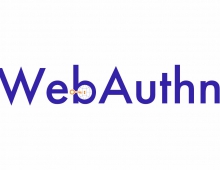
W3C Announces Draft of Standard for Online Privacy
To address concerns about privacy on the Web, the World Wide Web Consortium (W3C) published today two first drafts for standards that allow users to express preferences about online tracking.
The first standard is entitled "Tracking Preference Expression (DNT)" anddefines mechanisms for users to express cross-site tracking preferences and for sites to indicate whether they honor these preferences.
The second standard, "Tracking Compliance and Scope Specification," defines the meaning of a "Do Not Track" preference and sets out practices for websites to comply with this preference.
The expanding Web of connected devices and services has created powerful new applications that users desire, but with privacy implications they may not always recognize. Advertisers want to customize ads based on user behavior, similar to how market data is used for placing ads in print media and TV commercials. Web site owners want to understand traffic and purchasing patterns and tailor sites accordingly. Social networking widgets gather personal data that users volunteer. Powerful search engines make it easy to aggregate information and locate potentially sensitive information. Various parties thus routinely collect data from content and from visits to a site.
To find a balance, to prevent surprises, and to foster trust on the Web, the W3C has chartered the Tracking Protection Working Group to address both the privacy concerns of users and regulators, and the business models of the Web, which today rely heavily on advertising revenue.
"Smarter commerce and marketing strategies can and must coexist with respect for individual privacy," commented Dr. Matthias Schunter, IBM Research and co-chair of the Working Group. "Open standards that help design privacy into the fabric of how business and society use the Web can enable trust in a sustainable manner."
The new standard will allow users to express a preference whether or not data about them can be collected for tracking purposes. This helps to establish a new communication channel between users and services to prevent surprises and re-establish trust in the marketplace. The standard will also define mechanisms for sites to signal whether and how they honor this preference and a mechanism for allowing the user to grant site-specific exceptions to DNT.
W3C invites review of these first two drafts, expected to become standards by mid-2012.
The second standard, "Tracking Compliance and Scope Specification," defines the meaning of a "Do Not Track" preference and sets out practices for websites to comply with this preference.
The expanding Web of connected devices and services has created powerful new applications that users desire, but with privacy implications they may not always recognize. Advertisers want to customize ads based on user behavior, similar to how market data is used for placing ads in print media and TV commercials. Web site owners want to understand traffic and purchasing patterns and tailor sites accordingly. Social networking widgets gather personal data that users volunteer. Powerful search engines make it easy to aggregate information and locate potentially sensitive information. Various parties thus routinely collect data from content and from visits to a site.
To find a balance, to prevent surprises, and to foster trust on the Web, the W3C has chartered the Tracking Protection Working Group to address both the privacy concerns of users and regulators, and the business models of the Web, which today rely heavily on advertising revenue.
"Smarter commerce and marketing strategies can and must coexist with respect for individual privacy," commented Dr. Matthias Schunter, IBM Research and co-chair of the Working Group. "Open standards that help design privacy into the fabric of how business and society use the Web can enable trust in a sustainable manner."
The new standard will allow users to express a preference whether or not data about them can be collected for tracking purposes. This helps to establish a new communication channel between users and services to prevent surprises and re-establish trust in the marketplace. The standard will also define mechanisms for sites to signal whether and how they honor this preference and a mechanism for allowing the user to grant site-specific exceptions to DNT.
W3C invites review of these first two drafts, expected to become standards by mid-2012.



















